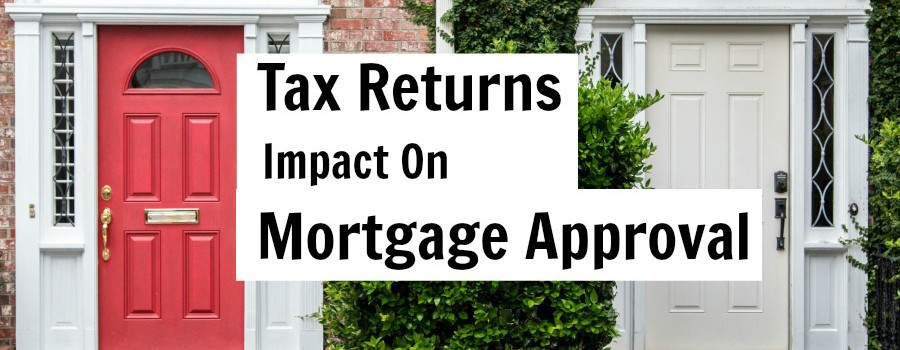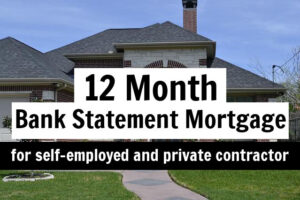What impact do your tax returns have on buying a house?
It is no secret that the income piece of the mortgage approval process is a major factor. Your ability to repay the mortgage is arguably to MOST important factor that is considered when applying for a home loan.
But how is that income calculated?
What if you are self-employed?
What if you have multiple sources of income?
In this post I am going to cover some of the most important things to consider when it comes to buying a house, and how your income plays such a major role.
How is my income calculated on my mortgage application?
There are many different forms of income, I am going to cover the most common that I run into, and give you general basics on how that income is considered in connection with mortgage appproval.
No matter the scenario, an underwriter is going to want to see consistency, and stability. Proving your ability to repay is the name of the game. If you can demonstrate consistency over most recent 24 months, and stability (same line of work), you are on the right track.
Salary employee (W-2)
Your annual gross salary divided by 12.
Example: 120,000 annual salary / 12 = 10,000 monthly income
For salaried employees it’s pretty straight forward as long as you have been in the same industry for 2 years. If you used to be an electrical engineer at 100K/year, but now you teach physical education at the elementary school, the underwriter may ask questions regarding stability, and may need to you to be on the job for 6-12 months before reconsidering.
It has to make sense.
Hourly Employee
Base wage is calculated by average number of hours reflected on most recent 30 days pay stubs.
Example: $15/hour X 40 hours per week X 52 / 12 = 2,600/month
If number of hours fluctuate, you’ll need a written verification of income ordered by your lender to be filled out by your boss or human resources department in order to get a better feel for your average number of hours worked
Commission – Bonus – Incentive – Overtime Income
Any fluctuating income is going to require a 24 month history in order to calculate consistency. If the incentive income is declining the underwriter will likely only use the most recent 12 months or year to date amount for the commission/bonus/overtime income in order to be safe.
1099 – Private Contractor Income
When you are a 1099 employee, the company paying you does not deduct things like federal/state income tax from your gross income. For that reason, what you claim on your federal tax returns as your actual income is up in the air until you actually file your tax returns.
There may be deductions that you’re eligible for that will reduce the amount of income you claim on your tax returns.
That reduction in earnings claimed will have an impact on your debt to income ratio when applying for a mortgage.
There is almost always a lack of consistency when considering 1099 income because of the nature of those types of earnings.
Again, in this case the underwriter is going to want to see proof of 24 months of receiving that type of income in order to determine what you actually claim as income after tax write-offs.
Self-Employed Income – Business Owners
Self-employed income is evaluated similar to the way 1099 employee income is reviewed.
Always best to be able to show two full years of tax returns so that the underwriter can reasonably calculate your income, and get a feel for the health of the business.
For simplicity purposes: your income is the number that is shown on the Adjusted Gross Income line on page 1 of the 1040’s.
Yes there are some deductions that can be added back into the bottom line, but for starters – just find the adjusted gross income to understand basic ballpark.
In addition it is common to have to require a year to date profit and loss statement. This is used to evaluate how the company is doing in comparison to the previous year. It is NOT used to increase your income if you happen to be having a very strong year.
If your business is anything OTHER than LLC or sole proprietorship, you’ll also need to provide two years of business/corporate tax returns along with K-1 if applicable.
Multiple Sources of Income
When seeking approval with 2 jobs, you need to be on job jobs for two full years. Otherwise there is no way to determine the likelihood of you being able to maintain that type of demanding work load.
If the second source of income is NOT from an employer, requirements will vary depending on source of income (disability, social security, pension, rental income, etc.).
Keep in mind – the name of the game is the ability to prove consistency and stability.
What if I filed an extension on my tax returns?
Many business owners take advantage of the opportunity to NOT file their taxes in April like the rest of the country, and instead file an “extension”. The extension allows them to not officially file their taxes until October.
This presents challenges when applying for a mortgage for 2 major reasons:
- The income for the year that the extension is filed for is basically disregarded by the underwriter. They will only consider it to confirm the income is in line with previous years. Cannot use it to increase the averages.
- When the extension is filed, there is an estimated amount owed for that year’s taxes. When an underwriter sees that estimated amount owed on the extension, they will typically require that amount to be paid prior to closing.
This goes for personal and business tax returns alike.
What if I show low income on my tax returns and I am a business owner?
It is very common for business owners to take full advantage of the legal tax write-offs that are available to them.
The problem with using those write-offs is they often offset the bottom line income claimed significantly.
For business owners in this scenario, who actually have strong income that they can prove – a bank statement loan may be the best solution.
A bank statement loan is a type of portfolio loan that allows business owners to qualify based on the income shown on their bank statements over a 12-24 month period.
This gives the lender the opportunity to evaluate a self-employed borrower’s income with more of a common sense approach.
On a bank statement loan you must be self-employed with the same business for at least two years.
[more on Bank Statement Loans and Portfolio Loans here]What if I have been self-employed for less than two years?
If you have have been self-employed less than 2 years you may need to look into getting a portfolio loan.
It’s an underwriter call, but without having 2 full years tax returns as self-employed most underwriters find it difficult to agree that stability has been established.
With a portfolio loan you may be able to get around that requirement if:
- You have been self-employed for at least 1 full year on tax returns
- You have at least two years of documented previous successful employment in the line of work in which you are self-employed in, or in a related occupation or
- You have one year of employment and formal education or training in the same line of work
If you’re in business less than one year, that income is not going to be considered as effective.
What if I want to only use my most recent year tax return to qualify?
When having a strong rebounding year after a slow year, it is often asked if a business owner can ONLY use the most recent year tax return to qualify. The logic is to be able to exclude the need to average the low year with the most recent strong year.
There is a conventional product that will allow you to use only the most recent year’s tax returns to qualify.
To be eligible for this product, you must have been in business for at least 5 years, and meet all other credit and asset guidelines. Contact me for questions on this.
In Summary
Tax returns play an extremely important role in the home buying process.
When you file, how you file, and how much income you claim will determine what type of loan will suit you best.
Get your questions answered.
I encourage you to reach out.
We can’t help everyone, but we do make every effort to take a common sense approach to get our borrowers approved if it makes sense.












What questions do you have?